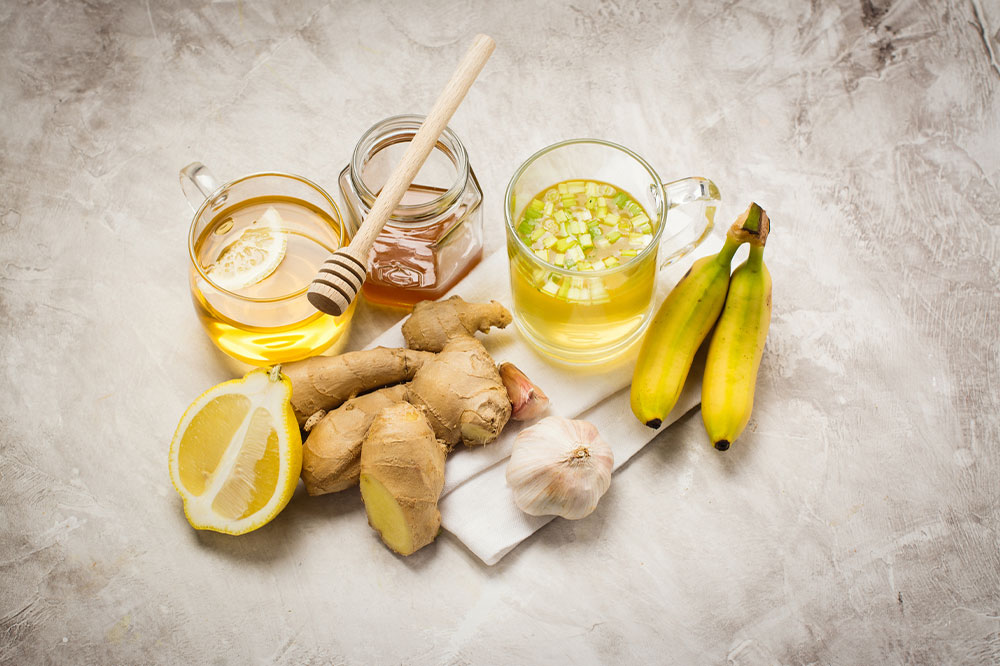Foods to eat and home remedies to manage the flu

Influenza, or the flu, is a contagious respiratory condition that attacks the respiratory system, such as the nose, lungs, and throat. It may lead to symptoms like fatigue, chills, body aches, fever, and nasal congestion. The illness may range from mild to severe. Fortunately, symptoms can be brought under control by over-the-counter medications. If the condition is not as severe, home remedies and eating certain foods can help alleviate the symptoms of the flu.
Foods to manage symptoms of the flu
Chicken soup
Chicken soup is one of the best foods to eat to manage the flu. The broth helps prevent dehydration, while its warm composition relieves congestion and a sore throat. Likewise, the chicken chunks, rich in iron and proteins, help boost the immune system.
Yogurt
Research shows that yogurt helps ease a sore throat and even boosts the immune system. It is a rich source of protein and probiotics that help fight off the flu. However, it is essential to avoid purchasing yogurt that has added sugar. Instead, choose unsweetened Greek yogurt.
Leafy greens
Green leafy vegetables are known to provide several health benefits to the human body. Leafy greens like kale, spinach, cabbage, and beet green contain vitamin C and E and iron. These, coupled with other nutrients, help strengthen the immune system.
Oatmeal
Oatmeal is a nutrient-rich whole grain. It contains immune-boosting nutrients like vitamin E, polyphenol antioxidants, and beta-glucan fiber. A warm bowl of oatmeal helps relieve a sore throat and fight inflammation.
Home Remedies to manage the flu
Saltwater gargle
Gargling with salt water is known to reduce infections in the upper respiratory passage. It even decreases the impact of cold symptoms. Gargling helps loosen mucus contaminated with bacteria and allergens, making it a good home remedy to treat symptoms of the flu.
Warm bath
A warm sponge bath for kids or warm baths for adults can significantly help bring down symptoms of the flu. Further, mixing an essential oil or Epsom salt with warm water may help reduce and ease body aches.
Vapor rub
Vapor rub is a popular ointment that works as a good home remedy for the flu. It reduces congestion, opens up the air passages, reduces coughing, and promotes a good night’s sleep.
Nasal irrigation
Nasal rinses or nasal irrigation is known to minimize post-nasal drips and a blocked nose. You can perform a nasal rinse with the help of a neti pot. Nasal rinses help clear sinus passages, improve breathing, and wash away allergens and mucus crust.

